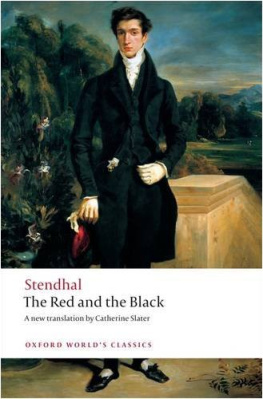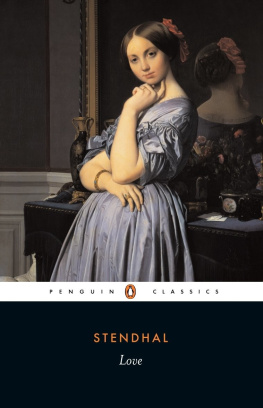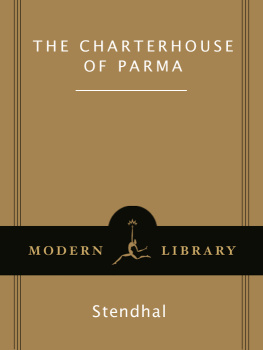Stendhal
Marie-Henri Beyle better-known by his pen name, Stendhal was born in Grenoble, France in 1783. He had an unhappy childhood, with his mother dying when he was very young, and at age of sixteen he rebelled against his father and went to study in Paris. Stendhal originally wanted to be a playwright, but ended up joining the army of French leader Napoleon and fighting in Italy, Germany and Russia.
After the final defeat of Napoleon in 1815, Stendhal split his time between Italy and Paris and dedicated himself to becoming a writer. He published works about the lives of classical period composers such as Mozart, Haydn and the librettist Metastasio. He also wrote a study of Italian life which brought him success, and two biographies: A Life of Rossini (1824) and A Life of Napoleon (1929). However, his first real success came in 1830, when he published The Red and the Black.
After King Louis-Philippe came to power in France in 1830, Stendhal became a diplomat in Italy, a country he loved. While there, he also wrote his other best-known work, The Charterhouse of Parma (1839). In this book, Stendhal explored the intellectual and moral climate of his native land France after the defeat of Napoleon.
Stendhal began to suffer from increasingly bad health. He eventually returned to Paris, where he died in 1842, aged 59. A number of works were published posthumously, including Lamiel (1889), Memoirs of an Egotist (1892) and Lucien Leuwen (1894). Stendhal is now regarded as one of the earliest and foremost practitioners of literary realism.
CONTENTS
Perfect sincerity. Good-bye to Mthilde. Entry to France. A model Frenchman
M. de Lussinge. A change of cafs. New acquaintances. Pangs of grief. My cousin Daru. At Mme. Dolignys
Alexandrine. An idiotic refusal
Let them start serving. The ridiculous Sgur. Paris: for cooking and for wit
M. de Tracy. M. de Lafayette. Gaiety in age. Picture of a salon. Ultra-liberals. The Iron Bar. Battle-rank on the blue divan. The sculptor and his horse. Going-on to Mme. Pastas. More charlatans. A day in my life. Dining companions. News from Milan
The epitaph of Errico Beyle. Setting off for London. A blunder at Calais. Tavistock Hotel, Covent Garden. Wandering in Richmond. Social climbers. Othello with Kean. Revenge for Waterloo. A house in Westminster Road. English Misses. For the sake of memory. Miss Appleby
Soldiers of fortune. Life with La Guidilla. Adoration of opera. The surprise of Chevalier Michevaux. Talma the tragedian. French critics of Mozart. Charity
The brave Count Corner. The axiom of a civil servant. A literary dictator. A well-made gown
A dictionary of political intrigue. Spending thirty thousand francs. Edward Edwards. Salons that bore. How Sir Walter wrote. Le Roi dYvetot. A Bourbons revenge
The forest of Montmorency. Lessons in love. Uncle Gagnon
An incomparable society
Escape from the Cossacks. Literary work. Grenoble: The Day of Tiles. From Piedmont to Paris. Horror of the Bourbons. To be read after his death
INTRODUCTION
WHEN Henri Beyle (Stendhal) devoted the leisure of an Italian summer fortnight to writing Memoirs of an Egotist, he had for nearly eighteen months been French consul at Civita Vecchia. This was long enough for him to become desperately bored both with his post and the place itself. Nobody of interest ever disembarked at the dreary little port to bring him news of Paris, and the captains of coasting-vessels from Marseilles made but indifferent company. Inspection of cargo-lists, endorsement of passports, and disputes with the harbour authorities, filled his daily round, while the attempt to carry out his duties conscientiously was continually hampered by friction with his assistant, Lysamaque Tavernier, a shady character of mingled Greek and French extraction, whose accountancy was as questionable as his bearing was cringingly insolent. Moreover, Tavernier, as Beyle suspected, was in the habit of writing to the French ambassador in Rome, and even to the Ministry of Foreign Affairs in Paris, accusing his chief of mismanaging consular affairs and granting himself too frequent leave.
The Ministry, in any case, looked on Beyle with no favourable eye. After Charles X, the last ruling member of the Bourbon dynasty, had been driven from France by the three days revolution of July, 1830, the government of the new and liberal monarch, Louis-Philippe, who replaced him, was flooded with demands for office from innumerable anti-Bourbon partisans. Although Beyle, who had never concealed his detestation of the fallen dynasty, and whose sallies against it had greatly contributed to the rare gaiety of the radical salons he frequented, did nothing to force his own claims, they were pressed on his behalf by influential friends, like the philosopher Tracy, until he was appointed consul at Trieste. Count Mol, the Foreign Secretary, regarded him with a benevolence not shared by the Ministry as a whole. Its officials, who knew Beyles identity with Stendhal, the author of a treatise on love and a scandalous novel that had recently appeared, Le Rouge et le Noir, considered authorship of such a nature incompatible with administrative capacity. They felt themselves the more justified, and looked forward only to trouble on Beyles account, when Metternich refused to accept him at Trieste on the ground that he had been expelled from Milan in 1828 as the author of works of revolutionary tendency inimical to the Austrian regime. Then, after he had at last been cased in Civita Vecchia, instead of following office routine in grateful obscurity, he created further annoyance in Paris by a mistaken zeal which impelled him to compose intelligent and statesmanlike despatches on the political situation in Italy, as though he were the Ministers personal adviser. He was sharply reminded that a consulate is not an embassy.
Thus unhappy in his office, Beyle found scanty relief in his surroundings when the days work was over. To him, it seemed that the town of Civita Vecchia, the country round, and the sea and the sky, combined in one unchanging dullness. Also, the inhabitants of Civita Vecchia, port of the Papal States, were ultra-catholic and ultraconservative; in increasing degree they looked askance on Beyle as a foreigner, a Frenchman, and the representative of a liberal monarchy. Although on feast-days he solemnly attended Mass, there was little doubt of his being neither pious nor respectable, and the better-class townsfolk, whose doors remained rigorously closed to him, were the more confirmed in this opinion when he took lodgings in the house of the local antiquarian, Donato Bucci, one of Civita Vecchias few liberals. Luckily, they knew nothing of Stendhal, and were unaware that Beyle considered the convicts chained in the galleys in the harbour his most interesting neighbours.
He had, however, one place of escape; Rome was not too far away, and there he spent those absences from duty which grew more and more frequent, and of which Tavernier told tales to his superiors. In Rome he found acquaintances, if hardly friends, and, above all, facilities for intelligent conversation. At the French embassy he was a welcome guest, though the ambassadress appreciated him more than the ambassador; at the Villa Medici, the residence of scholarship students from the Acadmie des Beaux Arts in Paris, he had entry to the Directors weekly receptions. Several Roman drawing-rooms were open to him, and at the Caf Lepri there was always the chance of a discussion with native and foreign artists and writers. In the protecting capital, Beyle showed himself at his full worth, and found due appreciation. Yet at the end of those Roman evenings when he had peppered the talk with squibs of paradox, sometimes wilfully making himself more alarming than amiable, but at any rate enjoying himself, the darker moods that came with loneliness were not to be denied. Rome, after all, was not to be compared with his adorable Milan, now for ever barred to him by the Austrian police; Roman society lacked the necessary element of passion, and, cosmopolitan though Beyle liked to count himself, there were too many foreigners in the city. The true Italian savour was adulterated there.









